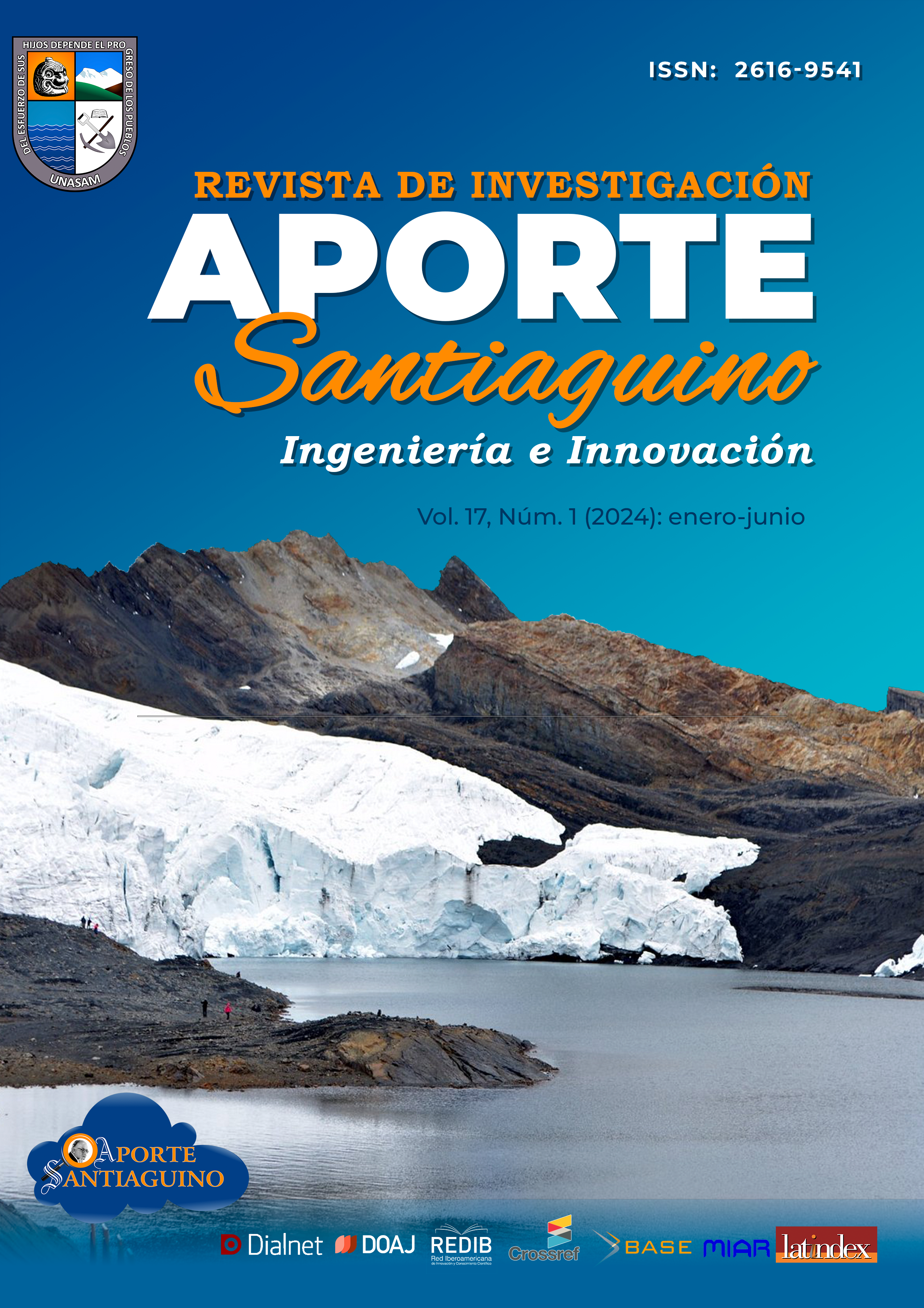Análisis de la evolución del relieve terrestre según la transición inversa de cotas
DOI:
https://doi.org/10.32911/as.2024.v17.n1.1144Palabras clave:
Relieve terrestre, Continentes, Océanos, Islas, TES, TEVResumen
Al analizar la Teoría de la Energía Sísmica y la Teoría de la Energía Volcánica entendemos que, como resultado de la sinergia de la energía interna con la energía externa en suelo propicio, se han ido produciendo cambios incalculables, evaluables en tempo geológico. Así, la presente investigación propone que la compleja evolución del relieve de la corteza terrestre es resultado de la transición inversa de cotas y la fluidez de las masas de agua de los océanos. Como resultado, constantemente se van redefiniendo la ubicación, dimensión, forma y cantidad de los continentes, las islas y los océanos, comprendiendo que la geografía que observamos actualmente no es más que la foto del momento.
Descargas
Citas
Andersson, U., Begg, G., Griffin, W., Högdahl, K. (2011). Ancient and juvenile components in the continental crust and mantle: Hf isotopes in zircon from Svecofennian magmatic rocks and rapakivi granites in Sweden. Lithosphere, 102, 435–459. https://doi.org/10.1130/L162.1
Bortnikov, N., Silant’ev, S., Bea F., Montero, T., Zinger, Skolotnev, S., & Sharkov, E. (2022). Multiple Melting of a Heterogeneous Mantle and Episodic Accretion of Oceanic Crust in a Spreading Zone: Zircon U-Pb Age and Hf-O Isotope Evidence from an Oceanic Core Complex of the Mid-Atlantic Ridge. Petrology, 30, 1–24.
Henderson, J., Gallou, C., Flemming, N., Spondylis, E. (2011). The Pavlopetri Underwater Archaeology Project: investigating an ancient submerged town. Underwater archaeology and the submerged prehistory of europe, 207-218.
Jian-Jun, F., Cai, L., Chao-Ming, X., Ming, W., Jing-Wen, C. (2015). The evolution of the Bangong–Nujiang Neo-Tethys ocean: Evidence from zircon U–Pb and Lu–Hf isotopic analyses of Early Cretaceous oceanic islands and ophiolites. Tectonophysics, 655, 27-40. https://doi.org/10.1016/j.tecto.2015.04.019
Judson, S., Don, Leet L. (1982). Physical Geology. Prentice Hall.
Los tres iniciados (1990). El kybalion. EDAF.
Macías, J. L. (2005). Geología e historia eruptiva de algunos de los grandes volcanes activos de México. Boletín de la Sociedad Geológica Mexicana, 3, 379-424. http://www.scielo.org.mx/pdf/bsgm/v57n3/1405-3322-bsgm-57-03-379.pdf
Mortimer, N., Campbell, H. J., Tulloch, A. J., King, P. R., Stagpoole, V. M., Wood, R. A., Rattenbury, M. S., Sutherland, R., Adams, C. J., Collot, J., & Seton, M. (2017). Zealandia: Earth Hidden Continent. GSA Today, 27, 27-35. https://doi.org/10.1130/GSATG321A.1
Patanè, D., De Gori, P., Chiarabba, C., & Bonaccorso, A. (2003). Magma ascent and the pressurization of Mount Etna’s volcanic system. Science 299, 2061–2063. DOI: 10.1126/science.1080653
Raynal, J., Defive, E., Klee, N., Buso, R., & Laporte, D. (2023). A Tale of Old and Young Volcanoes in Monts d'Ardèche UNESCO Global Geopark (South-Eastern France). Geoconservation Research 6, 207-232. 10.30486/gcr.2023.1983724.1136
Siebe, C., Macías, J. L. (2006). Volcanic hazards in the Mexico City metropolitan area from eruptions at Popocatepetl, Nevado de Toluca, and Jocotitlán stratovolcanoes and monogenetic scoria cones in the Sierra de Chichinautzin Volcanic Field. Geological Society of America, 402, 77
Skolotnev, S., Bel’tenev, V., Lepekhina, E., Ipat’eva, I. (2010). Younger and older zircons from rocks of the oceanic lithosphere in the Central Atlantic and their geotectonic implications. Geotectonics, 44(6), 462–492.
Stanley, J., Goddio, F., Schnepp, G. (2001). Nile flooding sank two ancient cities. Nature 412, 293–294. https://doi.org/10.1038/35085628
Stanley, J., Goddio, F., Jorstad, T., & Schnepp, G. (2004). Submergence of ancient Greek cities off Egypt's Nile Delta-A cautionary tale. GSA Today, 14, 4-10.
Valverde, C., & Valverde, Y. (2020). Teoría de la energía sísmica. Aporte Santiaguino, 13(1), 103–114. https://doi.org/10.32911/as.2020.v13.n1.684
Valverde, C., Valverde, Y. (2021). Teoría de la energía volcánica. Aporte Santiaguino 14(2), 159–173. https://doi.org/10.32911/as.2021.v14.n2.779
Valverde, C., Valverde, Y., Valverde, M. (2022). Los epicentros sísmicos en las ciudades: análisis de las barreras fotoprotectoras en base a la teoría de la energía sísmica. Aporte Santiaguino 15(1), 134–148. https://doi.org/10.32911/as.2022.v15.n1.934
Valverde, C., Valverde, Y., Valverde, M. (2022). The conductivity of the oceans: Analysis Based on the Seismic Energy Theory. In Advanced Engineering Forum. Trans Tech Publications 47, 81–87. https://doi.org/10.4028/p-l2f336
Valverde, C., et al. (2023) Theory of Seismic Energy (TES) and Theory of Volcanic Energy (TEV): TES and TEV two propolsals that revolutionize our knowledge. Eliva Press.
Valverde, C., Valverde, Y., Valverde, M. (2023). Theory of Volcanic Energy (Expanded English Edition). Modern Sciences Journal 12 (1), 76-86. https://doi.org/10.57184/msj.v12i1.28
Walker, J., Gaffney, V., Fitch, S., Harding, R., Muru, M., Tingle, M., & Fraser, A. (2022). The archaeological context of Doggerland during the final Palaeolithic and Mesolithic. Europe's Lost Frontiers. (pp. 63-88). Archaeopress.
Xiumian, H., Anlin, M., Weiwei, X., Garzanti, E., Yong, C., Shi-Min, L., Gaoyuan, S., Wen. L. (2022). Exploring a lost ocean in the Tibetan Plateau: Birth, growth, and demise of the Bangong-Nujiang Ocean. Earth-Science Reviews, 229. https://doi.org/10.1016/j.earscirev.2022.104031
Descargas
Publicado
Cómo citar
Número
Sección
Licencia
Derechos de autor 2024 Yulisa Valverde Romero, Milton Valverde Romero, Jhair Airtor Tarazona Valverde, Giorgio Aldair Tarazona Valverde, Yehosúa Antony Tarazona Valverde

Esta obra está bajo una licencia internacional Creative Commons Atribución 4.0.





















